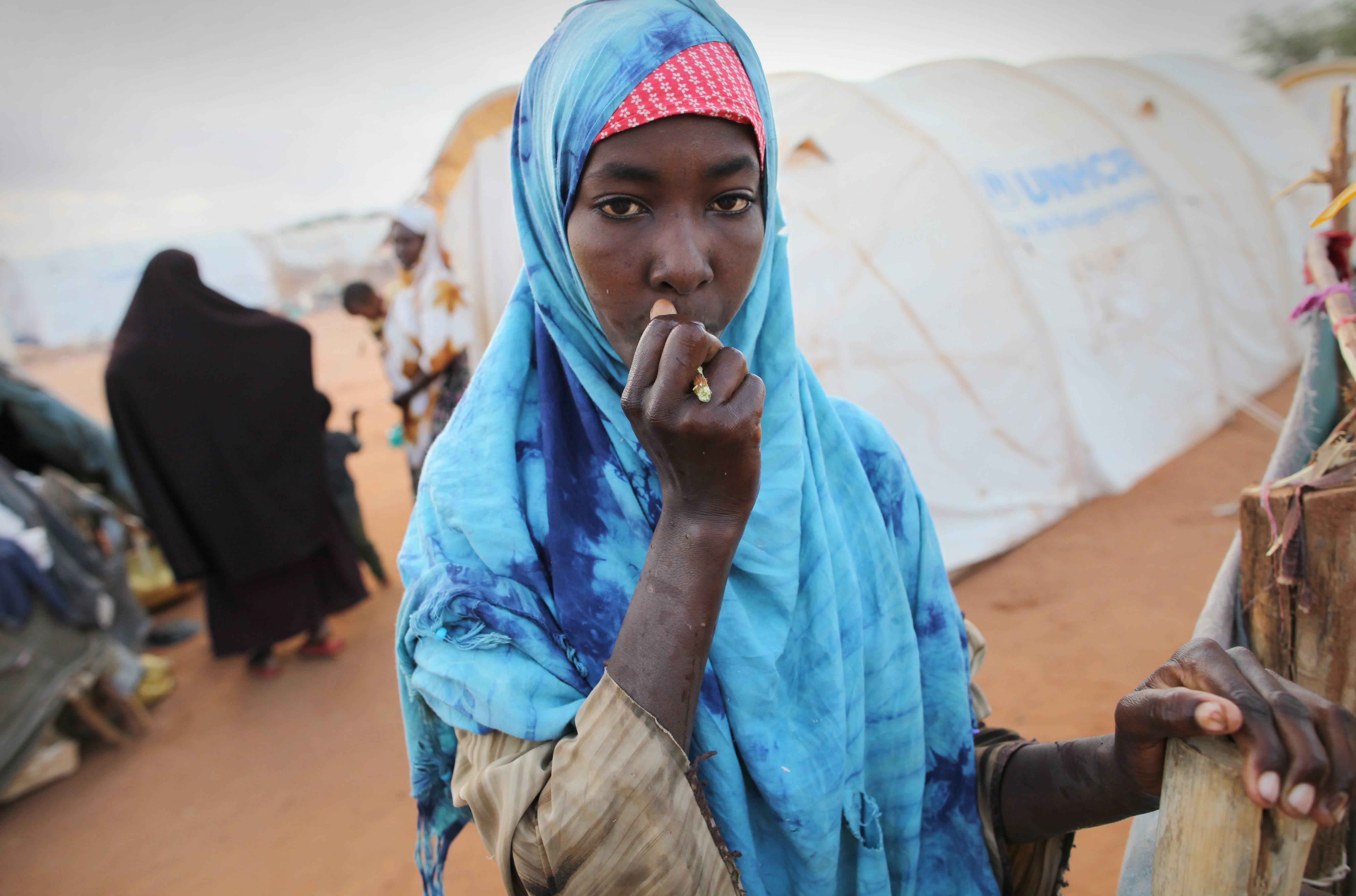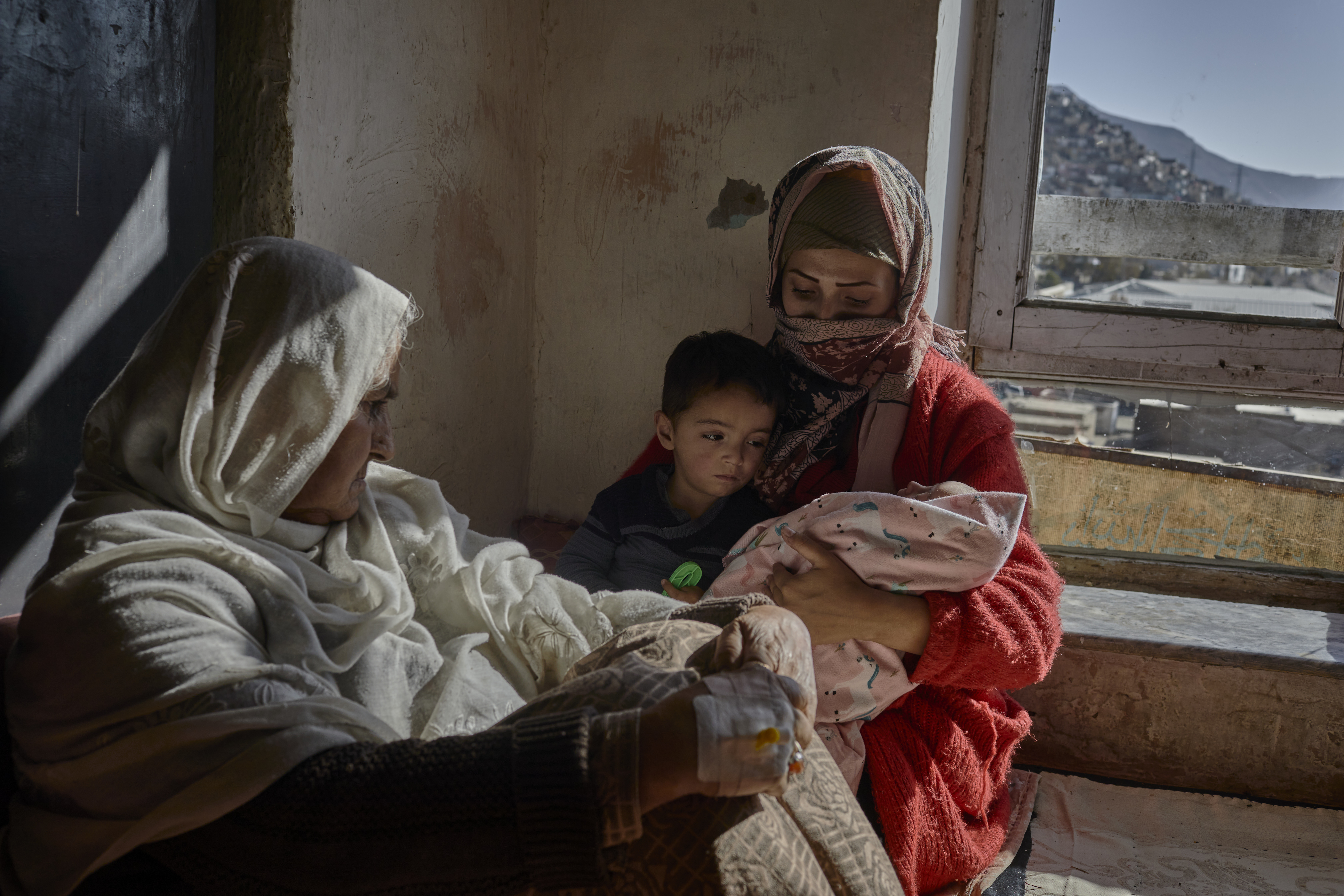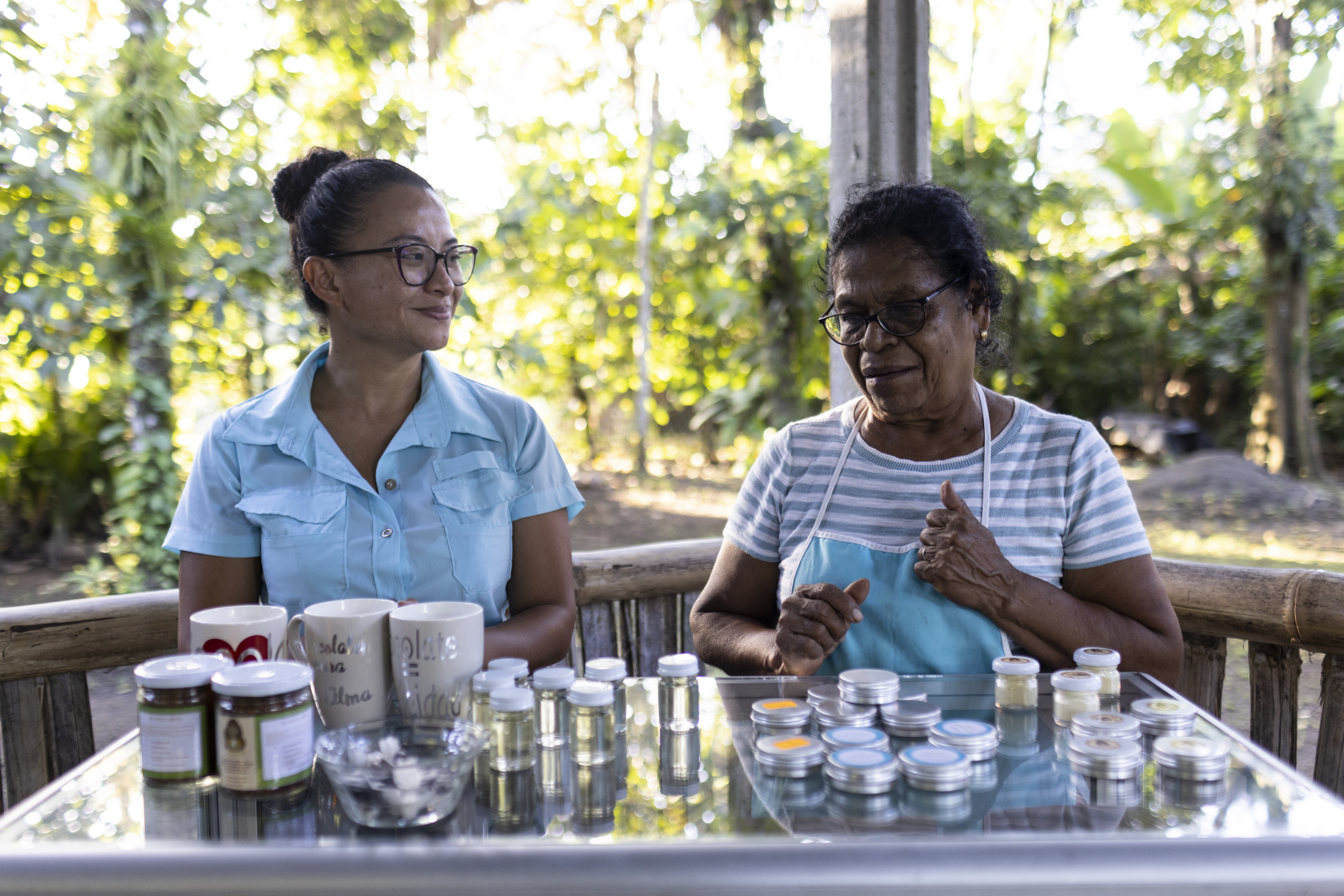International Women's Day: UNHCR chief stresses need for equality
International Women's Day: UNHCR chief stresses need for equality

GENEVA, March 8 (UNHCR) - As UNHCR offices around the world marked International Women's Day on Monday, High Commissioner for Refugees António Guterres said it was vital that all people of concern to the agency, male and female, are given equal opportunities and are able to realize their individual rights on an equal basis.
Guterres, in a special message to staff, added that this year's theme, Equal Rights, Equal Opportunities: Progress for All, was "a principle UNHCR has already committed to implementing through, for example, its strategy for Age, Gender and Diversity Mainstreaming."
The High Commissioner, noting that nearly half of all people uprooted by conflict are female, said inequality between women and men, and discrimination on the basis of sex occurs during all stages of the displacement cycle. "Moreover, difficulties accessing and enjoying rights are likely to be worsened during displacement leading to even greater gender inequality," he added.
Guterres stressed that UNHCR was also dedicated to ensuring women's equality within the organization. He said UNHCR's three-year-old policy on gender equity reflected the organization's determination to achieve gender parity in staffing.
UNHCR staff in offices and refugee camps around the world have arranged various programmes for today and the rest of the week to commemorate International Women's Day. In the agency's Geneva headquarters, female staff were selling handicrafts made by Iraqi refugees in Damascus for programmes aimed at the prevention and response to sexual violence.
Later this week, Ugandan refugee Kate Ofwono from Kakuma camp in north-west Kenya is due to take part with Assistant High Commissioner for Protection Erika Feller in a panel discussion in Geneva entitled, "Listen to Women for Change." Ofwono will also show a film she made, with UNHCR's support, about her life and challenges in Kakuma and how she has made use of the opportunities available for skills development and employment.
Luisa Cremonese, a senior UNHCR gender specialist who is helping organize the events in Geneva, said forced displacement often led to many human rights violations against women, both during flight and in camps. She added that in some cases abuse occured "even when they return home and the rights they have gained as refugees are no longer respected."
Meanwhile, in the Pakistani capital of Islamabad UNHCR and a local partner, Struggle for Change (SACH), convened a special International Women's Day meeting on Monday of local and refugee women to discuss the day's theme of equal rights and equal opportunities.
A 48-year-old Somali woman, Hadja, told the gathering that she had been abducted and held by a militia group for four years in her homeland before managing to escape. "I was subjected to a lot of physical and mental violence and the numerous scars on various part of my body are a reminder of the pain and hurt I had to endure," said Hadja, who has been living in Islamabad for the past three years.
Her husband, a former UN driver, was killed by militiamen in Somalia along with her father and eldest son. She said that she had been warned that she would be killed if she returned to Somalia because Hadja had refused to marry her brother-in-law. She lives in Pakistan with one of her daughters, but her three other children remain in Africa.
Hadja survives largely on an allowance of 4,500 Pakistani rupees (US$52) a month from SACH. She has a refugee card from UNHCR, but no right to work or permanent residence. Despite this, Hadja's strength has made her a leader among the Somali women in Islamabad.
Sharing her story at Monday's event, she said that "in spite of the traumatic experience and violence inflicted on me, I still have a will to live and hope for the future." She added that her "passion is to assist the weak, the needy and the voiceless."
Humaira, a 21-year-old refugee from neighbouring Afghanistan, told the meeting she had come to Pakistan when she was only four years old. "I feel Pakistan is my home country. I speak Urdu very well," said the maths teacher. "As a woman, I feel I can strive harder toward a better future," she said.
In Bogota, UNHCR marked the day by launching a video, "Sin Nombre (Nameless)," which tells the story of displaced Colombian women. The groups Mesa Mujer and Armed Conflict, meanwhile, presented their ninth annual report on socio-political violence against females in Colombia, which shows forcibly displaced women to be particularly vulnerable to sexual violence.
In Venezuela, UNHCR was taking part in an International Women' Day fair at the Central University of Venezuela in Caracas. The UNHCR office in Zulia was scheduled to make a presentation on international law at a conference on women's rights, with the focus on indigenous communities in the region.








